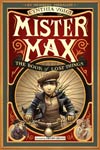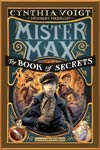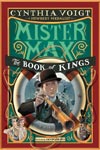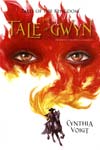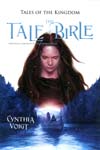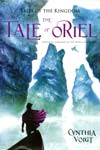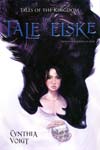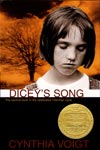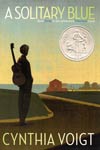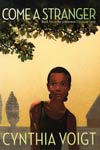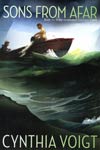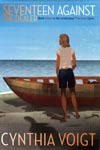Books by Author Cynthia Voigt
NEW Books

When Wishes Were Horses
Available now!
Released August 13, 2024
What would you wish for? For Bug, Casey, Zoe, and Billy, the answer is clear: A skateboard. A dog. Parents who don't argue. A unicorn. But the thing about wishes is that you don't always know for sure how your wish will be granted. Maybe your wish isn’t such a good idea. Maybe it will cause an avalanche of unexpected things to happen. Maybe you'll regret it. Maybe you want to change your mind... only it's too late. You need to be wise. Magic is tricky like that. What if you could wish for anything. What would you do?
Available from the following booksellers:
Amazon, Barnes & Noble, IndieBound, Powell's
Books for Adults

By Any Name
Rida is an orphan out of California who dances for the troops in the USO. Spencer is a naval officer with roots deep in New England's upper crust. They meet during World War II at an Officer's Club dance, and Spencer might have been dissuaded if he saw just one engagement ring on her finger, but instead, he sees four. The courtship is easy, Rida wins him and wears his ring alone. But Rida is a wild card, and Spencer's family can't accept her unconventional approach to marriage, motherhood, and life. Even Rida's four daughters struggle to understand her, but for them it becomes a quest—to untangle the mystery of their stubborn, off-beat, clear-sighted, loving, and above all mesmerizing mother.

Glass Mountain
Re-released 2017
A novel for adults, or maybe just romantics, as much like an old movie (I hope) as anything else, an old movie starring Cary Grant, for preference, about love among the rich, and those who aspire to be rich, and those who aspire to love.
Books for Children & Teens
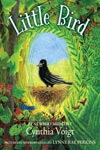
Little Bird
She is a small crow with a big heart, but Little Bird—despite her kindness and bravery—has never had the respect of the flock. Or communicated with a squirrel. Or flown high and long. Or seen a lake, eaten peanut butter, been afraid or been rescued. Now, however...
Available from the following booksellers:
Amazon, Barnes & Noble, IndieBound, Powell's
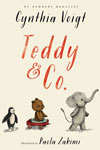
Teddy & Co.
Teddy is a thinking kind of bear. Of all of his friends, he does the most wondering. Teddy & Co. is about a teddy and those friends whose peaceful lives are disrupted by the arrival of two strangers, one after the other. Will the newcomers learn to fit in? Or will the community be forever changed? As Teddy "the thinker" would answer: Yes.
The Mister Max books:
Mister Max: The Book of Lost Things; Mister Max: The Book of Secrets; Mister Max: The Book of Kings
» Select a book cover above to view individual book description.
Maximilian Starling is the 13-year-old son of actors, who lives at the time when automobiles are just beginning to appear on city streets, and steamships have replaced sailing vessels. But he earns his living as the mysterious Mister Max, private investigator—not detective!—a shadowy, elusive figure on the streets of Queenstown, whose most important case is the recovery of his lost parents. These books tell the story of how Max Starling came to be almost alone in the world, and how he managed to make his own way, and all the people he met along that way.
Mister Max: The Book of Lost Things
Max Starling's theatrical father likes to say that at twelve a boy is independent. He also likes to boast (about his acting skills, his wife's acting skills, a fortune only his family knows is metaphorical), but more than anything he likes to have adventures. Max Starling's equally theatrical mother is not a boaster but she enjoys a good adventure as much as her husband. When these two disappear, what can sort-of-theatrical Max and his not-at-all theatrical grandmother do? They have to wait to find out something, anything, and to worry, and, in Max's case, to figure out how to earn a living at the same time as he maintains his independence. This is the first of three books, all featuring the mysterious Mister Max.
Mister Max: The Book of Secrets
Max is back! The twelve-year-old detective in disguise returns for Act II of this mystery-adventure trilogy. Mister Max's reputation is growing—now even the Mayor is asking for his help. Who is setting fires and smashing store windows? Why won't the shopkeepers talk to the police? What secret are they all keeping? It's Max's most dangerous case yet, and he may need to give up a few of his own secrets in order to orchestrate a perfect solution.
Mister Max: The Book of Kings
Max has puzzled out where his parents are being held captive and it's clear they won't escape without his help. He even has a rescue plan (or the beginnings of one). But it's a plan so big, so daring, it requires the help of a king just to set it in motion. Why would a king help Max?
The Kingdom books:
The Tale of Gwyn (previously published as Jackaroo); The Tale of Birle (previously published as On Fortune's Wheel); The Tale of Oriel (previously published as The Wings of a Falcon); The Tale of Elske (previously published as Elske)
» Select a book cover above to view individual book description.
These are adventure stories that take place in a distant past at a time when reading is a privilege restricted to the wealthy and powerful, where justice is hard to come by, where danger – from without or within, from above or below or any side, from natural or human causes–threatens. The heroines and heroes of these stories have to fight to win what is important to them, and sometimes they have to give it up.
THE TALE OF GWYN
(previously published as Jackaroo)
I hope you know about Zorro, that masked hero of Old California, righter of wrongs and defender of the downtrodden, who let the oppressors know he had undone their bad work by slashing a Z with his sword, so that no innocent person could be blamed or punished for it. All of my life I have wanted to be Zorro, galloping around the countryside, doing good. He had a cape and a mask and a sword, and he had possession of my imagination.
Gwyn's story is a Zorro story, with cape and mask, sword and galloping steed, but as it turned out, things aren't quite that simple. It isn't at all the same. Just for starters, Gwyn is a girl—and that might change everything, turn everything upside down. Also, she lives in the Kingdom, as real a place as I could make it, whose people are as most like real people as I could make them.
THE TALE OF BIRLE
(previously published as On Furtune's Wheel)
After telling Gwyn's story, I thought I was finished with the Kingdom, but some time later, I read a book about life in a city during the Renaissance era. For some reason, I kept thinking about that time, that city.
I wondered about the wheel of fortune, the idea that there is a wheel on which each of us is fixed, at birth, by chance for all of our one life. The wheel turns and our life goes on and in whatever chance says is the proper time, we drop off, disappear.
I wondered about the science of Alchemy, which was almost chemistry but also tried to work with magic, and about those wise women who cured people with herbal remedies. I wondered about the condittorei, the mercenary soldiers who followed their bold captains, some of whom eventually became great nobles, ruling over wide landscapes, and ruling well, too, some of them.
Especially I wondered about girls, what their lives were like, and especially what the life of a girl who didn't always go along quietly might be like.
That was when I remembered the Kingdom, with its peasants and nobles, hunters and innkeepers, injustices, laws, superstitions—a whole complicated world, and I remembered Gwyn, too. All of this turned into Birle's story.
THE TALE OF ORIEL
(previously published as Wings of a Falcon)
This story began as one of those What If? thoughts you have when you are in a place that is unlike a place you’ve seen before. I have no idea why such thoughts come floating along; I just know that they do, and that travel encourages them. This particular place was a path that ran along the side a steep ravine in Europe. I was clambering up it, many years ago, when for some reason I pictured two young men who, after ascending the wall of the ravine and were just hauling themselves up, over the rocky edge, onto safety.
Right away I knew it was a Kingdom story, and they were the heroes. But where had they come from, and where were they going, and what was it about them that made them heroes? What, I started to wonder, was it inside that made someone heroic? And if you were such a person, what might your story be?
THE TALE OF ELSKE
(previously published as Elske)
Another of those floating What If? thoughts introduced me to Elske. This time I was in Denmark, in a museum. In a long, glass-walled room, which overlooks the harbor out which it was dredged, are the preserved remains of a Viking Longship. The timbers are black with age, but it is still easy to imagine that boat, approaching your small, undefended town across the waves. It seems built for a life more cruel than the present.
The three non-glass walls of that room are hung with panels describing Viking life. One describes the funeral of a King, one part of which involves the thrall, a girl chosen for the role and prepared for it with strong liquor, who is raped by the chieftains and then left to burn with the king, her cries drowned out by the singing of the mourners. How could this not seize my imagination? It became the start of the story of Elske, the Death Maiden.
The Tillerman books:
Homecoming; Dicey's Song; A Solitary Blue; The Runner; Come a Stranger; Sons from Afar; Seventeen Against the Dealer
» Select a book cover above for more about the book's characters and author's inspiration.
With both parents gone, the four Tillerman children—Sammy, Maybeth, James and Dicey, who at 13 is the oldest and the one responsible—have to find a place where they can live together and, once they have done that, they have to learn how to be there, how to live their own lives and grow up into their own selves. The Tillermans—all of them, including Gram and Momma and Bullet—are not people who have things easy, or make things easy on themselves. These books tell the various stories of this family, and of their friends, too.
HOMECOMING (author's comments)
"This story began—or was caused by—four children who had been left in the station wagon while the driver/adult—a parent? A babysitter-grandmother-aunt-neighbor?—went into the supermarket to shop. I myself had parked just down the row on the weekly grocery shopping trip, which happened every Friday on my way home from school. I had my list ready. I walked by the car. I noticed that the children were waiting there.
"For some reason, and I have no idea what that reason might have been, on that afternoon that car and those children caught my attention. As the electric door into the market swung open in front of me—this, I remember vividly—I thought: "What would happen if nobody ever came back for those children?"
"By the time I got to the tomatoes, I had another question: "What would keep somebody from coming back for those children? Why would it happen that they were abandoned? How could it happen that they would be so alone?"
"It may well have been beside the rows of chicken parts that I said to myself, "That is a REALLY GOOD IDEA" and took out the little notebook I always carry to write it down.
"And that was the beginning of my published writing career."
DICEY’S SONG (author's comments)
"I realized, when I finished writing Homecoming, that the story itself wasn’t over. The story couldn’t be over, I felt, until the question of Momma was settled, one way or another. When that happened, the Tillermans could move ahead in their own lives.
"But that first book was so long, even after I reduced it by 200 manuscript pages, I didn’t think the publisher would want the book to be even longer. (I was right about that.) So I wrote the end of the story (which I sometimes think of as Homecoming, Part III) as another book, Dicey’s Song. I wasn’t sure my editor would want to publish it, but she did, which was lucky for me."
A SOLITARY BLUE (author's comments)
"In Dicey's Song, I introduced Jeff, a guitar playing boy who thought my cranky heroine was pretty near perfect, and in her friendship with him she learned a lot about herself. But even after that book ended, and was out of my desk drawer, out being printed, out in bookstores, I kept on thinking about this Jeff Greene.
"For one thing, I quite liked him. I found him an interesting person.
"For another, I wondered how he had become the person he was, where he had come from, who his parents were, why he was living in one of the farthest, quietest corners of the world, and I wondered especially why Dicey mattered so much to him. So I wrote his story."
THE RUNNER (author's comments)
"War—any war, but in a person my age the VietNam war—is fought by young men. It is mostly young men who put themselves at risk, who are put in harm's way. So it seems to me that a war that does not have the best of reasons for existing (and there aren't very many of those, unless you think greed for land or for wealth or for power is a good reason) is throwing away the lives of the young men it sends to fight.
"I could not swallow the VietNam war. I didn't march or make speeches; I was a teacher, I was fully occupied, I wasn't sure who was telling me the truth about anything, those are my explanations. I didn't protest but I couldn't get it down my throat. I gagged on it. I still do.
"That's the reason behind Bullet's story. Of course I think Bullet's story is behind all of the other Tillerman books, and is a part of all of them, and should not be forgotten."
COME A STRANGER (author's comments)
"Mina Smiths is a formidable young woman, and also a young African American woman (although in those days, the proper term was black). I first met her in Dicey's Song and she made an appearance in A Solitary Blue, so it should surprise nobody that I wanted to write a book, to tell her story, how she became the girl she was and how fine a young woman that girl became.
"In this book I also got to bring Tamer Shipps back onto the stage in an important role, and I was very glad to get to spend more time in his company."
SONS FROM AFAR (author's comments)
"This book belongs to Sammy and James, the brothers. They are very different from one another, but both of them are boys who are living among a bunch of women, and strong-minded women at that. All boys like to have a father (well, so do girls, but this book is about the boys), and if that father hasn't been around, for whatever reason, why shouldn't a boy go looking?
"Of course, there are some good reasons why not, but Sammy Tillerman doesn't always listen to good reasons, not when there's something he wants to do. James will always listen, and if it was up to him, they would forget about Francis Verriker, but it's not up to him. What is up to him is to be a brother.
"With a father like Francis Verriker, if you go looking for him, what you'll probably find is: trouble. When trouble comes, it's good to have a brother at your side."
SEVENTEEN AGAINST THE DEALER (author's comments)
"If you notice, this book is dedicated to all the students I got to teach, over many many years. I think that's a good dedication for a story about someone who is learning, a story about keeping on trying to get what you want, or need, a story about making mistakes and then deciding what you want to do about it,when you make a mistake.
"It should come as no surprise that one of the stories I remember from when I was young is the one about Scotland's Robert the Bruce and the spider. Bruce, who was fighting to win the throne, had just lost a battle and was hiding out in a ruined stone cottage in the wild highlands of Scotland. This was the sixth battle he'd lost and he was discouraged. He believed that he was the lawful king, but he'd failed in six tries to win the throne and he wondered if he shouldn't just give up.
"It was then that he noticed a spider. The spider wanted to swing across a corner, to anchor a web it had begun on the adjacent wall. It tried to reach the second wall, and failed. It tried again, and failed again. It tried a third time, and failed, a fourth, a fifth. At the sixth, and it failed again. But on the seventh try, it reached the wall, anchored the sticky strand and set about the work of weaving its web.
"Robert the Bruce took heart from this example. He succeeded in winning his next battle, the seventh, and went on to be crowned King of Scotland.
"Dicey Tillerman would have approved of him."
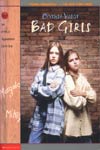
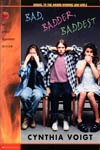
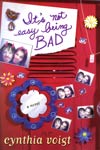

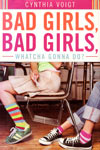
The Bad Girls books:
Bad Girls; Bad, Badder, Baddest; It's Not Easy Being Bad; Bad Girls in Love; Bad Girls, Bad Girls, Whatcha Gonna Do?
Mikey and Margalo meet in 5th grade, and from then on, through 6th, 7th, 8th and 9th grades, they stay friends, doing the kinds of things friends do, fighting with or for each other, quarreling, hanging out, heading off in different directions and sharing food, experiences, troubles. Every year brings its own difficulties and its own opportunities—mostly, but not always, opportunities for social disaster. It is not easy for the two friends to run the world the way they want to, the way it should be run.

The Rosie books:
Stories about Rosie; The Rosie Stories
These are the closest thing to autobiographical writing I have ever done, and they are the ... adventures? misadventures? ... of Rosie, the family dog, who never really became a sensible mature creature. Almost everything that happens in these stories, really happened; almost everything that is said, was really said. And Rosie was just as much fun as it looks like she is.
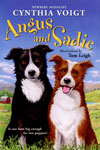
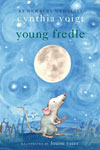
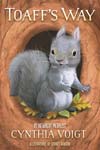
The Davis Farm books:
Angus and Sadie; Young Fredle, Toaff's Way
The stories take place among the animals living on the Old Davis Farm, under the care of Mister and Missus. Angus and Sadie are border collie puppies adopted from a shelter, brother and sister, but very different from one another. Angus is quick and strong and bold while Sadie starts out with a broken leg, so she is slower, and also timid, and maybe even foolish. Fredle asks too many questions and, as if that doesn't get him in enough trouble, there is always his sweet tooth to do the job. Toaff is a small gray squirrel full of big questions. His sister shrugs, his brother scoffs, and his mother scolds—that's just the way it is. So before he can think too hard... he leaps!

Building Blocks
Brann discovers that he has traveled back in time, and met his father when he is only Brann's age.
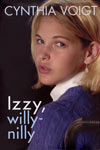
Izzy, Willy-Nilly
Izzy is a normal high school girl, normally pretty (with especially good legs), normally popular, normally smart, just a nice girl, until an accident changes her—and her future—in a way that can never be undone.

David and Jonathan
After World War II, a Holocaust survivor comes to live with the American Jewish family that has been searching for him. But nothing about David is what the family, especially the son, Jonathan, expected, or wished for.
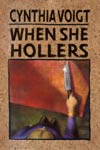
When She Hollers
What if your life is a deadly trap? Can you escape? If so, how, and also, is there anybody there to help you? Who do you have to be, to be a person who can escape? Tish's life is a trap.
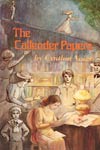
The Callender Papers
This is a Gothic novel, with secrets from the past that must be brought out into the open, if the young heroine wants to escape with her life.
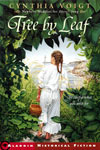
Tree by Leaf
If you were given—somehow—the power to cure the ills of the world, or at least some of the ones you know about, the ones that distress you, could you really make things better? Or could you only make them different?
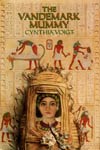
The Vandemark Mummy
When the mummified remains of a girl are bequeathed to the college, Phineas and his sister find themselves in the middle of a dangerous mystery.
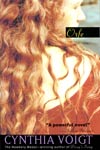
Orfe
In the myth, Orpheus sang such wonderful, beautiful songs that the King and Queen of the Dead agreed to let him lead his beloved wife back up to the land of the living, as long as he did not look back to be sure she was following him, all the long journey. But he did look back, and he lost her again and forever. How could that happen? And if it were to happen in the recent past, what would the story be?
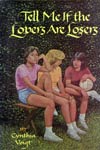
Tell Me if the Lovers are Losers
Three very different girls are assigned to be room-mates at college, and over their freshman year they learn to live together, and to be friends to one another, and to cause changes in one another.
Award-winning Books
- Angus and Sadie
- Sequoyah Book Award (given by readers in Oklahoma), 2008
- The Katahdin Award, for lifetime achievement, 2003
- The Anne V. Zarrow Award, for lifetime achievement, 2003
- The Margaret Edwards Award, for a body of work, 1995
- Jackaroo
- Rattenfanger-Literatur Preis (ratcatcher prize, awarded by the town of Hamlin - of course - in Germany), 1990
- Izzy, Willy-Nilly
- Young Reader Award (California), 1990
- The Runner
- Deutscher Jungenliteraturpreis (German young people's literature prize), 1988
- Zilverengriffel (Silver Pen, a Dutch prize), 1988
- Come a Stranger
- Judy Lopez Medal (given by readers in California), 1987
- A Solitary Blue
- Newbery Honor Book, 1984
- The Callender Papers
- The Edgar (given by the Mystery Writers of America), 1984
- Dicey's Song
- Newbery Medal, 1983
![Author Cynthia Voigt [logo]](/_img/ele/lgo-370x72.png)

